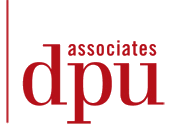
Michael SLINGSBY
Submitted by frankie on Tue, 2012-02-07 04:29.
Michael Slingsby
Michael Slingsby is currently an Urban Poverty Specialist in India on a DFID funded consultancy providing support to the Ministry of Housing and Urban Poverty Alleviation on the design and implementation of its urban poverty reduction programmes (JNNURM and RAY).
In addition, he has recently completed a short consultancy assignment preparing an Urban Climate Change Resilience Project for DFID, the Rockefeller Foundation and ADB in India and Indonesia.
Until September 2010, after retiring from the UN system, he was UN-Habitat’s Country Representative in Afghanistan, managing a portfolio of US$125 million and a staff of 1,050. This included a USAID funded literacy programme (US$40 million). He was a member of the UN Country Team and in the absence of the Special Representative of the Secretary General and the UN Resident Coordinator He has acted as SRSG a.i. and UN RC a.i. As Head of Agency, he has dealt directly with government ministers, the heads of other UN Agencies such as UNICEF, WHO and UNDP as well as with project donors including USAID, DFID, EU, Government of Japan and Canadian IDA.
Prior to this, he has had assignments with UN-Habitat and UNDP in Bangladesh. He was the lead consultant in the design of the Urban Partnerships for Poverty Reduction Project. Later he was appointed as its Project Manager. This covered 30 towns in Bangladesh and includes security of tenure strategies, provision of water supply and sanitation and community drains, roads and footpaths and town level poverty reduction and economic development programmes. DFID provided a UK£60 million grant. He was a member of the grant negotiation team.
His earlier work with UNDP in Bangladesh, was as Chief Technical Adviser for the Local Partnerships for Poverty Alleviation Project, covering 11 towns with over 100 field and headquarters staff. The project included community contracting for the provision of water supply and sanitation and community infrastructure, a strong community empowerment component based on community savings and social and economic development programmes.
In Vietnam, he was the Senior Technical Adviser on a Public Administration Reform programme based in Haiphong City. The programme introduced public private partnerships for solid waste management involving the communities, local government and private contractors and supported the preparation of a City Development Strategy. During this period, he undertook a research study for the World Bank “Enhancing Access of the Urban Poor and Vulnerable Groups in Vietnam to Basic Infrastructure and Housing- Development of a Detailed Action Plan for Can Tho’. This was part of the World Bank’s preparation for its Vietnam Urban Upgrading Programme.
In Cambodia, the DFID/UNDP funded project in Phnom Penh, where he was the Chief Technical Adviser, supported communities to build their own infrastructure through community contracting and it introduced a livelihoods component through an apprenticeship programme.
His work in India with DFID, as Manager of their Urban Poverty Office, included management and monitoring responsibility for a £100 million slum improvement programme covering five cities with the emphasis on water supply, sanitation, roads, drains and community buildings. The programme also had community development, health, education and livelihoods components.
His professional work has included contact with urban poverty professionals, senior government officials, donors and NGOs and he has been actively involved with the Bangkok based Asian Coalition for Housing Rights and their Asian network.
